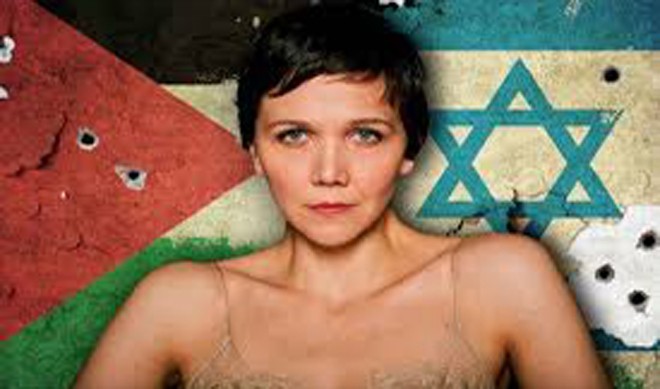
A labyrinthine plot and quite intense, The Honourable Woman makes as much sense as such a terribly senseless situation can

Dear all,
The BBC’s eight-part Drama series The Honourable Woman concluded on TV here last month in much the same intense and brutal manner it began.
Maggie Gyllenhaal’s depiction of the troubled Nessa Stein, the daughter of a Zionist arms procurer who tries to turn her father’s company into a vehicle of positive change in the Palestine-Israel context, was outstanding -- as were nearly all the performances in this tense drama. This visually and narrative-wise stylish production has been referred to as a sort of British version of Homeland, and while it too is set in a world of international espionage and political intrigue, its mood is very different. The dark melancholy tone is most reminiscent of the work of John Le Carre, updated just slightly to the 21st century.
This is a strangely compelling eight-parter even though it’s one of the more bloody and brutal TV series around. Blood, death, hatred and cruelty permeate the action, and blood and violence invade the cold and seemingly serene beauty of plush London interiors with terrible regularity. The scenes set in Gaza are raw and unflinching, and the desperation of the situation is certainly effectively conveyed. The characters we see in the murky world of espionage and intelligence organisations are terrifying: all playing their own horrible games, each trying to hoodwink their allies.
One of the most remarkable aspects of Hugo Blick’s drama is the weight of the female characters: apart from Nessa and her Palestinian friend the former translator Atika Halabi, we see women in charge at MI5 (the head is played wonderfully by a tough and unflappable Janet McTeer) as well as at the US State Department. These are strong, smart, sometimes frighteningly ruthless, women like the Monica Chatwin character.
The acting is great: Stephen Rea, as the outgoing head of the MI5 Middle East desk Sir Hugh Hoyden-Hoyle, puts in a convincing performance as a rather old fashioned sort of spook -- all hang-dog expressions and shabby shoes -- but sharp and switched-on as can be. Lubna Azabal makes a huge impact as Atika, a loyal employee of the Stein family whose relationship with Nessa is intense and complex, and whose son Kasim is a key part of the mystery surrounding Nessa.
Read also: Fictionalising a cruel conflict
Atika’s actions in the very last episode shift one’s understanding of the story’s title. Perhaps Atika was the actual ‘honourable woman’ and her final, steely words "Get off my land" are unforgettable.
It’s a labyrinthine plot, quite intense, but it makes as much sense as such a terribly senseless situation can. It’s bloody and brutal, and perhaps that’s also why the little boy Kasim’s silences are so disturbing. In the midst of all the tensions, he seems strangely emotionless, much valued but largely unloved, surrounded by violence and strife but impassive in the midst of everything.
This is a story mostly about the dehumanising effects of a bitter and unequal contest. Where there are no winners, just a terrible unending spiral of bloodshed and hatred. Certainly compelling viewing.
Best wishes